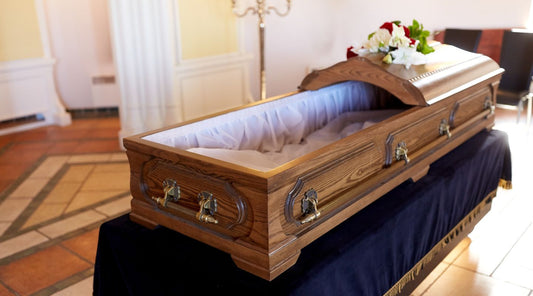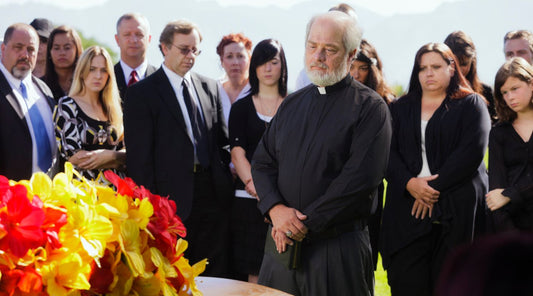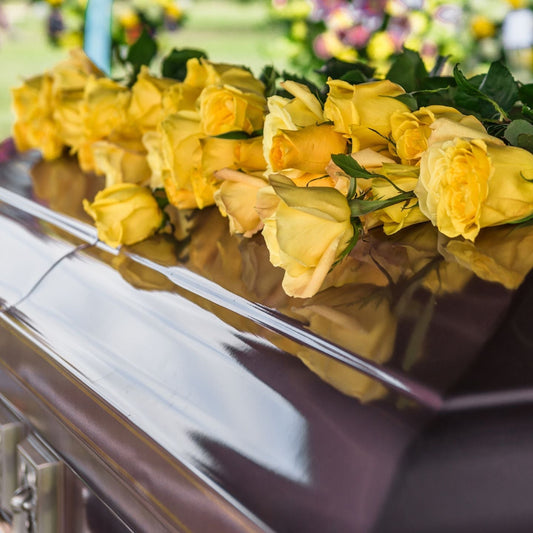
2024 Veterans Burial Benefits Guide, How to Get Up to $2,000 for Funeral Costs
If you're a veteran or have a family member who served, you need to know about these benefits. They're not just a token of gratitude, they're a right earned through service.
Many families miss out on these benefits simply because they don't know about them. That's a shame because these benefits can save thousands of dollars and make the funeral planning process much easier. Whether your loved one served in Vietnam, Iraq, or anywhere else, understanding these benefits now can save you stress and worry later.
Think of this guide as your friendly conversation with someone who wants to help you understand what's available, how to get it, and why it matters. We'll break down all the complex stuff into simple, clear information you can actually use.

Eligibility for Veterans Burial Benefits
Let's cut through the confusion and talk about who can get these benefits. The good news is that most veterans qualify, but there are some basic requirements to know about.
First up, you're eligible if you meet any of these conditions:
- Served active duty and weren't dishonorably discharged
- Died while on active duty
- Served in the National Guard or Reserves and were activated for federal service
Here's what's interesting: even if you're still serving, your family can apply for pre-need eligibility. It's like planning ahead to make things easier for your loved ones.
Some special cases worth mentioning:
- Reserve and National Guard members who served their full term
- Veterans who served during wartime
- Those who got a service-connected disability, even if it wasn't what caused their death
What about family members? Spouses and dependent children of eligible veterans can also receive burial benefits. And here's something people often miss: spouses can be buried in a national cemetery even if they pass away before the veteran.
One important detail for 2024: If you're paying for a veteran's funeral and burial costs, you might get up to $978 for non-service-connected deaths. This amount goes up if the death was service-connected.
Remember: Having the right discharge papers (DD Form 214) handy makes everything much smoother. If you can't find them, don't worry - we'll talk about how to get copies later.

Types of Veterans Burial Benefits
Let's break down all the burial benefits available to veterans. There's actually quite a bit more than most people realize.
National Cemetery Benefits:
- A gravesite in any of the 155+ VA national cemeteries that have space
- Opening and closing of the grave at no cost
- Ongoing care of the gravesite forever - you'll never pay a maintenance fee
- A government headstone or marker (you can choose from several designs)
- A burial flag that's perfect for displaying or presenting to family
- A Presidential Memorial Certificate signed by the current president
Private Cemetery Benefits: If you prefer a private cemetery, you still get:
- A free government headstone or marker
- A burial flag
- The Presidential Memorial Certificate
- The same monetary benefits as national cemetery burials
Money Matters (2024 Updates): For service-connected deaths:
- Up to $2,000 for burial expenses
- Transportation costs to a VA national cemetery
For non-service-connected deaths:
- Up to $978 for burial and funeral expenses
- Another $978 for the plot if not buried in a national cemetery
- These benefits increased in October 2024 to help families with rising costs
Extra Benefits You Might Not Know About:
- Military funeral honors with a bugler and flag ceremony
- Free transportation of the deceased to the nearest national cemetery
- Special medallions for private headstones showing veteran status
Here's a helpful tip: You can use these benefits alongside any private funeral arrangements or life insurance payouts. They're not an either/or situation - they're additional benefits you've earned.
For cremation, these same benefits apply. You can choose to have the ashes buried in a national cemetery or take them home - the memorial benefits like the marker and flag are still yours either way.
How to Apply for Veterans Burial Benefits
Applying for burial benefits isn't as complicated as you might think. Here's a straightforward guide to get you through the process:
- Who can apply:
- The veteran's family member
- The executor of the veteran's estate
- A representative from the funeral home
- When to apply: File your claim within two years of the veteran's burial or cremation. But don't worry if you're past that - you can still apply, just explain the delay.
- How to apply:
- Online: Use VA Form 21P-530EZ on the VA website. It's the quickest way.
- By mail: Send the completed form to your regional VA office.
- In person: Visit your local VA regional benefit office.
- What you'll need:
- The veteran's death certificate
- Receipts for burial and funeral costs
- DD Form 214 (discharge papers)
- If applicable, a statement of service-connected death
- Tips for a smooth process:
- Double-check all information before submitting
- Keep copies of everything you send
- If you're not sure about something, ask for help from a Veterans Service Organization
Remember, you can start this process before the funeral. In fact, pre-planning can make things much easier during a difficult time.
If you need help, don't hesitate to reach out to the VA or a Veterans Service Organization. They're there to assist you through this process.

Casket and Urn Benefits
When it comes to caskets and urns, the VA offers some helpful benefits. For veterans who die while hospitalized at a VA facility or under VA contracted care, the VA provides a free casket or urn. This benefit also extends to veterans with no next of kin and insufficient resources for a burial.
However, many families choose to select their own casket or urn. If you're looking for a special way to honor a veteran, consider the Military Veteran Silver Casket from Trusted Caskets. This casket is specifically designed to pay tribute to those who served, featuring military insignia and high-quality craftsmanship.
Remember, while the VA doesn't typically provide a casket for home deaths, they do offer a reimbursement of up to $978 for burial and funeral expenses as of October 1, 2024. This can help offset the cost of a casket or urn of your choice.
Whether you opt for a VA-provided casket or choose a specialized one like the Veteran Casket, the most important thing is that it reflects the honor and respect due to the veteran's service.
Additional Considerations
When planning for veteran burial benefits, there are a few more things to keep in mind:
- Benefits for Spouses and Dependents: Spouses and dependent children of eligible veterans can be buried in a national cemetery, even if they pass away before the veteran. This includes same-sex spouses. However, remember that monetary burial benefits are generally not available for spouses and dependents buried in private cemeteries.
- State-Specific Benefits: Many states offer additional burial benefits for veterans. These can include burial in state veterans cemeteries, additional monetary benefits, or special recognitions. Check with your state's Department of Veterans Affairs for details.
- Pre-need Determination of Eligibility: Veterans can apply for pre-need eligibility determination for burial in a VA national cemetery. This can ease the burden on your family during a difficult time.
- Burial at Sea Option: The Navy and Coast Guard offer the option of burial at sea for veterans. This unique ceremony can be arranged through the VA and might appeal to veterans with a connection to naval service.
- Presidential Memorial Certificates: In addition to other benefits, families can request Presidential Memorial Certificates. These are engraved paper certificates signed by the current U.S. President to honor the veteran's service.
- Headstone Medallions: For veterans buried in private cemeteries with a privately purchased headstone, the VA offers bronze medallions to attach to the headstone, marking the deceased's status as a veteran.
Remember, these benefits are meant to honor the veteran's service. Don't hesitate to ask for clarification or assistance from the VA or veteran service organizations if needed.
Common Questions and Misconceptions
Let's clear up some common confusion about veterans burial benefits:
Myth: "Only veterans who died in combat qualify." Truth: Any veteran with an honorable discharge qualifies, regardless of whether they served in wartime or peacetime.
Myth: "VA benefits cover all funeral expenses." Truth: While VA provides significant help, they typically don't cover all costs. As of 2024, they provide up to $978 for non-service-connected deaths.
Myth: "You can't use VA benefits with a private funeral home." Truth: You can absolutely combine VA benefits with private funeral services. Many families do this.
Myth: "Spouses can't be buried in national cemeteries." Truth: Eligible veterans' spouses and dependent children can be buried in national cemeteries, even if they pass away before the veteran.
Myth: "It's too complicated to apply." Truth: The process is straightforward, and veterans service organizations are always ready to help you navigate it.
Remember: The key is to start the process early and keep important documents handy, like the DD Form 214.
Resources for Further Information and Assistance
For more help, check out these resources:
- VA's official website: www.va.gov/burials-memorials/
- National Cemetery Administration: www.cem.va.gov
- Veterans Crisis Line: 1-800-273-8255 (press 1)
- Your local Veterans Service Organization
- State Department of Veterans Affairs websites
- VA regional offices for in-person assistance
Don't hesitate to reach out - these services are here to support you.
Conclusion
Navigating veterans burial benefits doesn't have to be overwhelming. Remember, these benefits are a way to honor the service and sacrifice of our veterans. Don't hesitate to use them.
As you plan, consider visiting https://trustedcaskets.com/. They offer a range of options, including specially designed veteran caskets, to help you create a meaningful tribute.
Take the time to understand your options, ask questions, and seek help when needed. Whether you choose a national cemetery, a private burial, or another option, the most important thing is creating a fitting memorial for your loved one's service.
Your veteran deserves to be honored. These benefits and resources are here to help you do just that.


